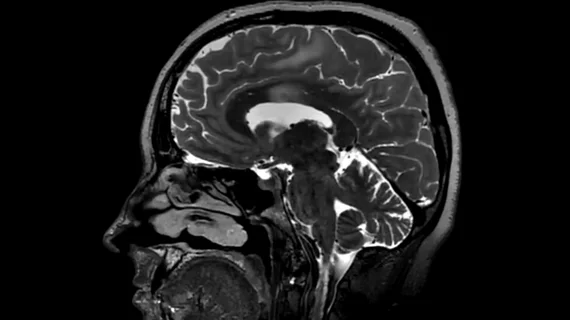MRI small enough to fit in truck bed set for human trials
A team of researchers at the University of Minnesota has developed an MRI machine they say can produce high-quality images in line with a traditional unit, despite being compact enough to fit in the back of a pickup truck.
Traditional MRI machines can weigh around 4,500 kilograms, but this “tiny” model only weighs 400 kg. On top of that, it can be disassembled into four pieces for easy transport. According to coverage from the Minnesota Daily, Michael Garwood, lead researcher on the project, said 90% of the world’s population does not have access to an MRI. He hopes this small model will pass human trials and ultimately bridge that gap.
This portable machine does have limitations, mainly that it can only be used to scan the head. It resembles a hooded hair dryer, with an imaging dome that lowers to cover a patient’s head while they sit in a chair. A strip of glass sits at eye level for the patient to look out of during the procedure.
Garwood said the machine was designed with children in mind, as they can be particularly terrified during an MRI scan. The goal was to create a scanner that was less intimidating and reduced any feeling of claustrophobia.
Under the hood, the device is fitted with modern advancements, albeit with some changes — the lower operating field, at 1.5 tesla, is achieved using paraffin wax instead of epoxy as a binding agent. However despite the lower field, Garwood told the Minnesota Daily it still produces clinical-quality images — or at least, that’s what he and his team conclude from their test runs.
The team at the University of Minnesota is currently preparing to conduct controlled human trials within the next two months, having previously performed scans on objects like water bottles and lemons, all of which produced high-quality images without the need for artificial intelligence upscaling.
The development of this compact MRI involved collaboration between researchers at the University of Minnesota, Yale, Columbia, as well as scientists from Brazil and New Zealand.
Assuming it all works as planned, the machine's portability, small size, lower tesla, and unique cooling mechanism make it an exciting advancement in the field of medical imaging, with the goal of bringing access to MRI technology to remote and underserved communities around the world.
The Minnesota Daily has the full story, including photos of the actual machine. Check out their coverage at the link below.

